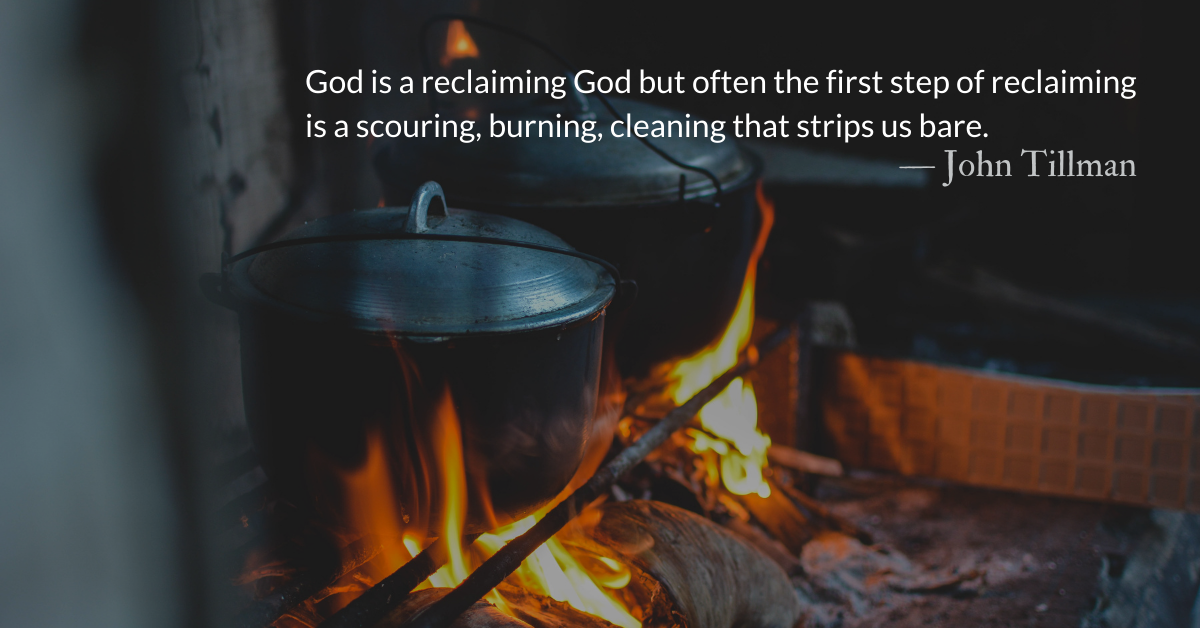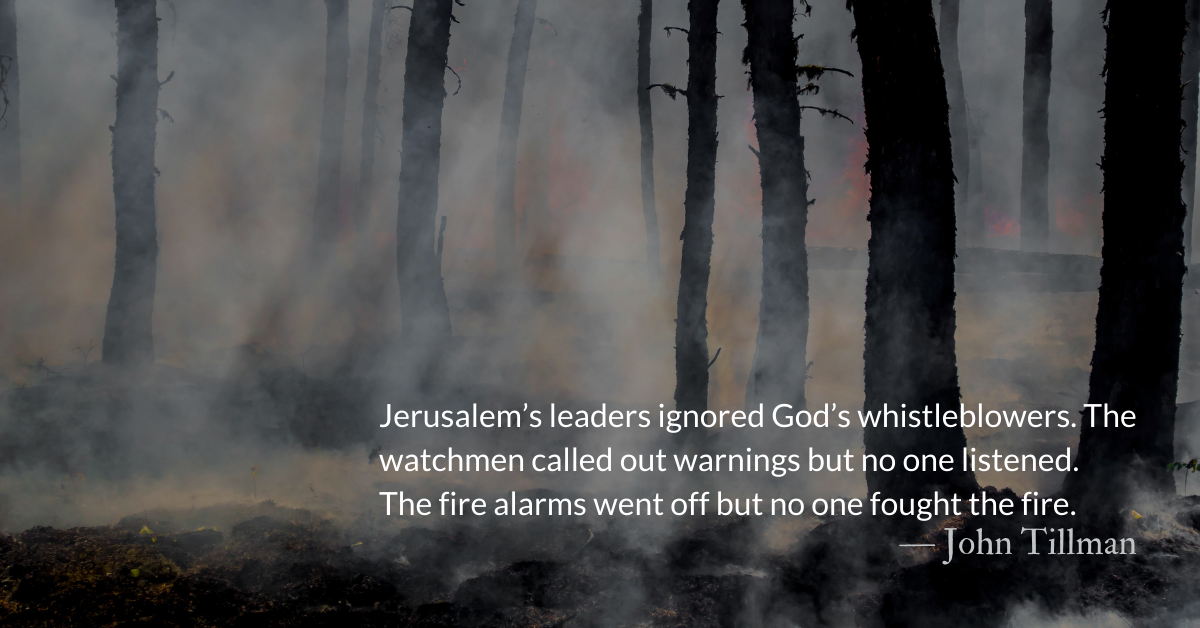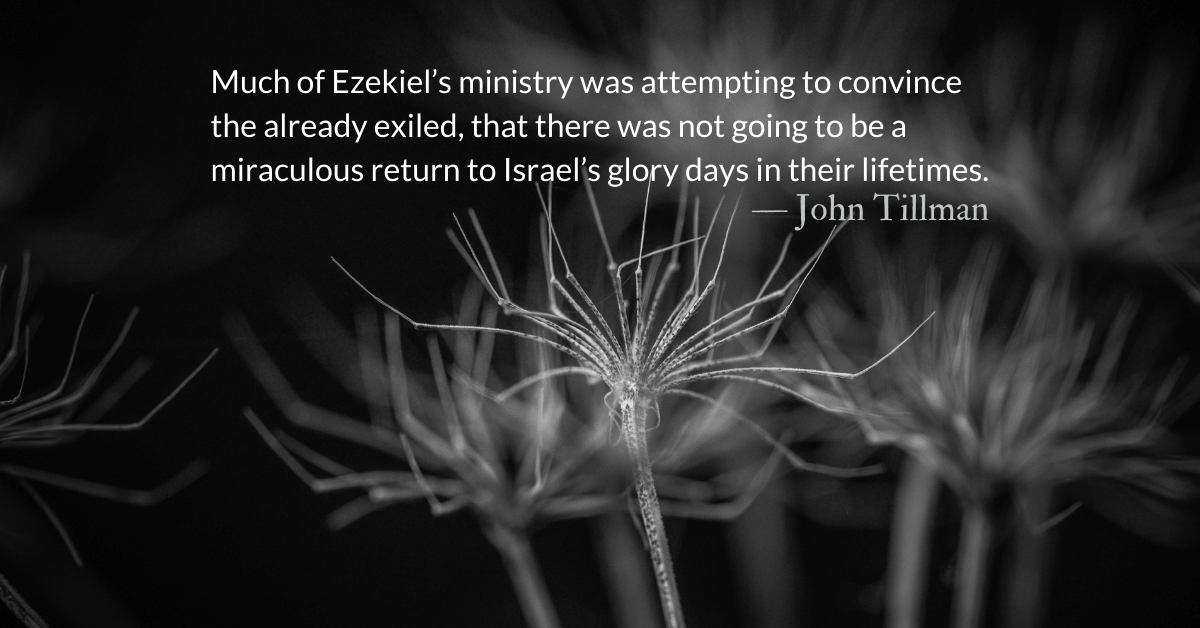Scripture Focus: Ezekiel 26.2-3
Son of man, because Tyre has said of Jerusalem, ‘Aha! The gate to the nations is broken, and its doors have swung open to me; now that she lies in ruins I will prosper,’ 3 therefore this is what the Sovereign LORD says: I am against you, Tyre, and I will bring many nations against you, like the sea casting up its waves.
Psalm 74.18-19
18 Remember how the enemy has mocked you, LORD,
how foolish people have reviled your name.
19 Do not hand over the life of your dove to wild beasts;
do not forget the lives of your afflicted people forever.
Reflection: The Poisonous Merry-Go-Round of Mockery
By John Tillman
Mocking is not looked on favorably by God in scripture.
While his punishment for the sins of Jerusalem was being carried out, God had harsh responses to nations surrounding Israel and Judah who would mock, cheer, celebrate, or participate in the destruction. Tyre is just one example.
There are long lists of countries and kings falling under God’s judgement for mockery and scorn. God’s people, however, should not be among them. When Jerusalem is being mocked, Ezekiel is instructed to lament the fall of the mockers. Mockers will be brought to justice. We are instructed to lament.
Tyre was powerful, not because of its land mass but because of its economic influence. The economy of the Mediterranean ran on Tyrian ships. Tyre’s glee at the fall of Israel was due to the newly opened opportunities for profit.
Comedy and satire have a fitting role in entertainment and the arts, but it is the vitriol that passes for political rhetoric and news coverage that is the most profitable form of mockery today. Individuals, institutions, and industries are built upon the monetization of mockery.
When someone or something crashes and burns, jeers and mockery rise with the smoke. The more savage the headline, the better it will sell. They aren’t making beauty from ashes. (Isaiah 61.3) They are making money from it.
Meanness makes the world go ‘round, mockery is a media moneymaker, and Christians have been hopping on this poisonous merry-go-round. As Tim Keller said recently, “The demonization and dehumanization of the other side must stop. When professing Christians do it, it is triply wrong.” We help monetize mockery with our retweets, likes, shares, and passing on the derisive and divisive rhetoric that we intake.
Every time we click and share, the scornful cash in. Scorn is on the menu as we scroll through tweets, headlines, and memes. Far too many of Christ’s people lap up the disdain which drips from the lips of politicians and reporters and then spew it back out like so much bile. Disciples sound like their teachers. Some Christians sound more like these heartless mockers than like their rabbi-in-name-only, Jesus.
Although God tells Ezekiel of Tyre’s fate, is it not for Ezekiel to gloat or celebrate. God instructs him to lament. (Ezekiel 27.1-2) God deals with mockers. We need not return fire.
Judgment will come for mockers. May God’s people not be among them.
Divine Hours Prayer: The Refrain for the Morning Lessons
Protect my life and deliver me; let me not be put to shame, for I have trusted in you.
Let integrity and uprightness preserve me, for my hope has been in you. — Psalm 25.19-20
– Divine Hours prayers from The Divine Hours: Prayers for Summertime by Phyllis Tickle
Today’s Readings
Ezekiel 26 (Listen – 3:45)
Psalm 74 (Listen – 2:34)
Read more about Responding to Political Violence
Our political rancor has reached the point of normalizing violence…Christians not excluded.
Read more about Abandoning Human Vengeance
We must be the first to break the chain of retaliatory and violent rhetoric.
We must abandon human vengeance before we can see divine justice.











